#polemicists
Explore tagged Tumblr posts
Text
Wanna know how the genderbend au got started for Polemicists, Felicity, and Riddle……..
You didn’t ask for this, but here it is anyway!!!!!
It started because I got bored and decided to do that height chart for references so that when I’m drawing I know where to place them height wise.

Then I got bored again and thought why don’t I switch their genders with the same height. As @mangacupcake and I are talking about how Fem!Riddle is a late bloomer, we decided that Riddle is going through a growth spurt because of her Leviathan genes, went through normal puberty at 12, going through monster puberty at 18yrs old.

So there you go boredom and needing drawing references strikes me at the most weird times.
@marrondrawsalot @adrianasunderworld @writing-heiress @the-weirdos-mind
#twisted wonderland#twst oc#polemicists#polemicists is my oc#felicity rosehearts#polemicists belongs to me#headmistress rosehearts au#felicity isn’t mine#genderbend#genderbend au#male!felicity#fem!polemicists#fem!riddle#riddle doesn’t belong to me#riddle rosehearts
16 notes
·
View notes
Text
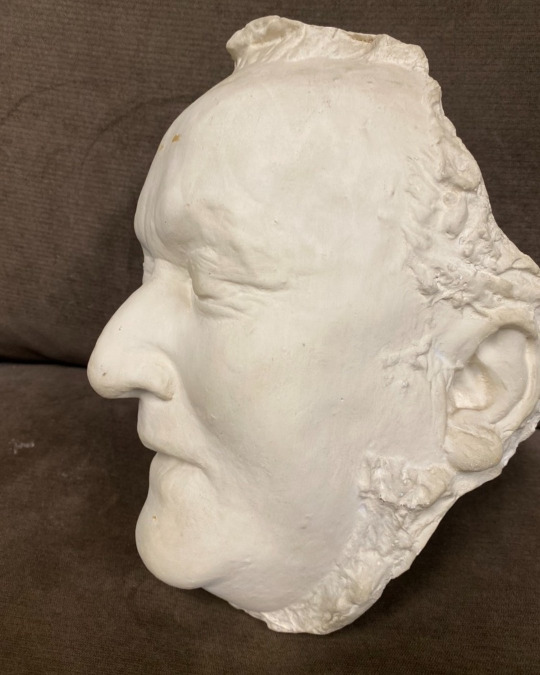
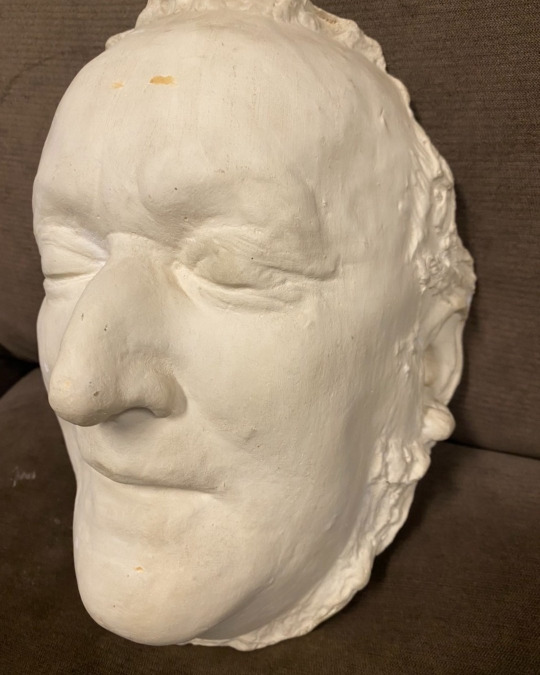

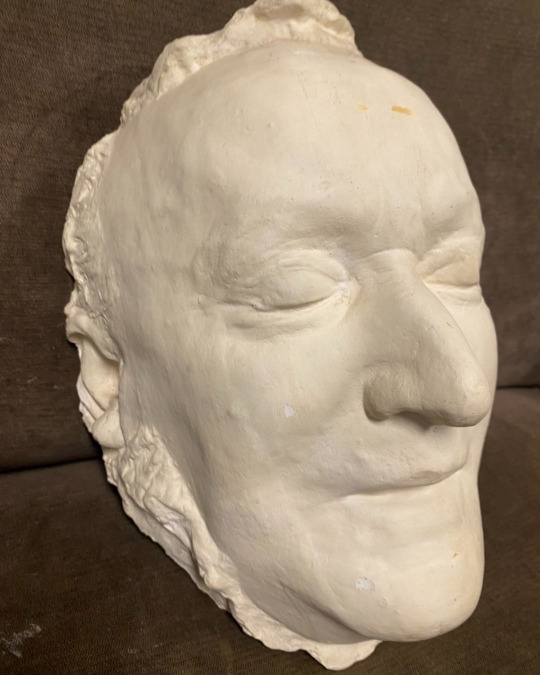

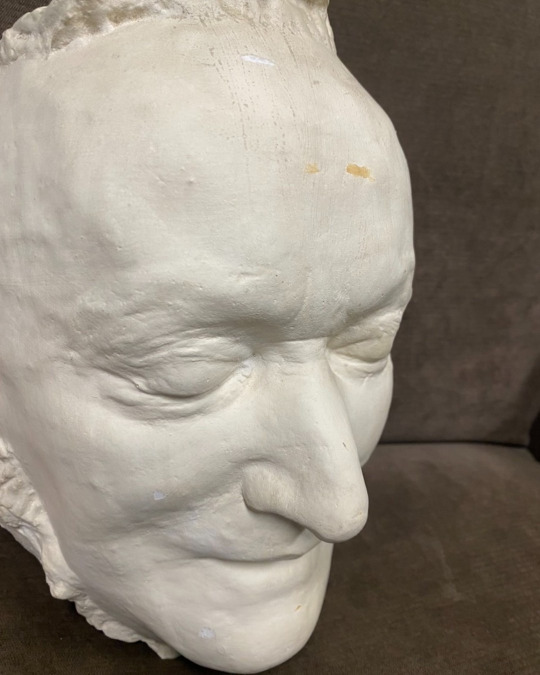
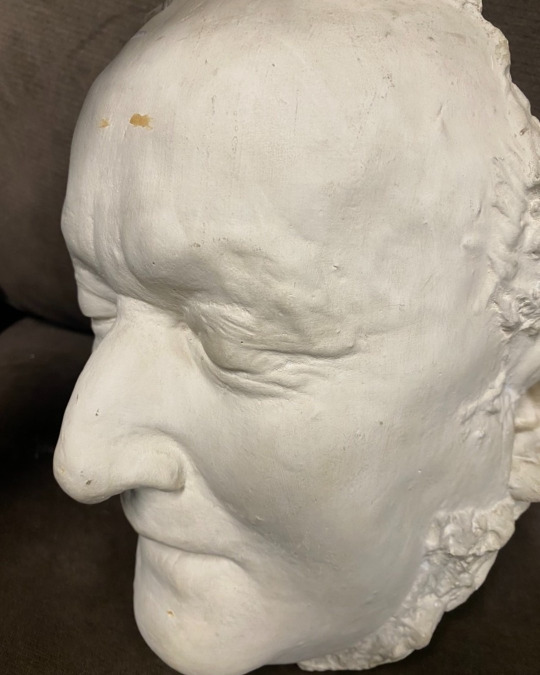
OTD in Music History: Legendary composer and conductor Richard Wagner (1813 - 1883) dies suddenly, of a massive heart attack, in his opulent study at "Ca' Vendramin Calergi," a magnificent 16th-century palazzo on the Grand Canal in Venice. Unlike most opera composers throughout history, Wagner wrote both the libretto (i.e., the text) and the music for each of his mature stage works. After initially establishing his reputation as a composer of stage works in the grand “romantic” vein of Carl Maria von Weber (1786 - 1826) and Giacomo Meyerbeer (1791 – 1864), Wagner went on to revolutionize the entire genre of opera through his controversial but brilliant concept of the “Gesamtkunstwerk” (the "total work of art"), through which he actively sought to synthesize the poetic, visual, musical, and dramatic arts into a unified whole into which an audience could be fully immersed -- essentially, a comprehensive and shockingly modern conception of what we now know as cinema, envisioned decades before movie-making technology was even invented. Wagner described this vision in a series of essays published between 1849 and 1852, and he ultimately most fully realized these ideas in his epic four-opera cycle, “Der Ring des Nibelung” (“The Ring of the Nibelung," first performed in 1876). Wagner’s late compositions are notable for their complex textures, rich harmonies and orchestration, and elaborate and highly sophisticated use of “leitmotifs” -- individual musical phrases that are associated with individual characters, places, ideas, or plot elements. In the 1870’s, Wagner also had his own opera house built (the “Richard-Wagner-Festspielhaus” in Bayreuth, Germany) which introduced many novel design features which have since been regularly incorporated into new opera houses. Both the complete “Ring Cycle” (1876) and his final opera, “Parsifal” (1882), were premiered at the Bayreuth Festival, and a regular Summer music festival dedicated solely to Wagner's works founded by Wagner, which continues on to this day. PICTURED: A plaster copy of Wagner's death mask.
#death mask#death#mask#Richard Wagner#Wagner#composer#classical composer#theatre director#polemicist#conductor#libretto#librettist#opera#classical music#bel canto#music history#chest voice#Bayreuth Festival#Faust Overture#symphony#concert overture#Siegfried Idyll#Bridal Chorus#Lohengrin#Götterdämmerung#Der Ring des Nibelungen#Das Rheingold#Die Walküre#Siegfried
3 notes
·
View notes
Text
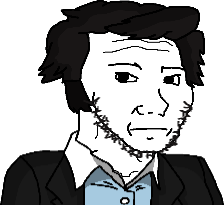
Title/Name: Wilhelm Richard Wagner, popularly known as 'Richard Wagner', (1813–1883). Bio: German composer, theatre director, polemicist, and conductor. Country: Germany Wojak Series: Feels Guy (Variant) Image by: Wojak Gallery Admin Main Tag: Richard Wagner Wojak
#Wilhelm Richard Wagner#Richard Wagner#Wagner#Composer#theatre director#polemicist#conductor#music#feels guy#Bio#Variant#German#Germany#Wojak#Feels Guy Wojak#Richard Wagner Wojak#Feels Guy Series#White#Gray#Black
0 notes
Text
What if I started calling myself a screedwriter.
0 notes
Text
It's odd to me that audience capture hasn't yet entered the general Discourse lexicon the way phrases like "motte-and-bailey", "virtue signaling", etc. have. For my money it's the main dynamic that drives nearly all sufficiently-famous Internet polemicists into crazy wingnuttery; by extension it's one of the most powerful forces on the Internet and mass culture in general, and should probably be more carefully studied.
297 notes
·
View notes
Note
On the other hand, I saw transgenderism and good TTRPG theory and immediately jumped in like an autistic version of Scrooge McDuck
I'm always a bit taken aback when people refer to my posts as "theory" because it has connotations of having a solid theoretical framework for my thoughts about RPGs when at the end of the day I'm just a Woman who Posts. Like, don't get me wrong, I do actually believe the things I say make for good practice in TTRPGs (even though some of the things I say are heavily opinionated so there's plenty of room for disagreement) but I'm not quite sure if my musings would stand up to scrutiny in the halls of People who Actually Think Hard About this Stuff.
None of which is to devalue your feelings about my posts being good theory! If you feel that way I do consider myself honored, but as I often keep saying, I consider myself more of a critic and a polemicist. (Mostly because I like the word polemicist.)
45 notes
·
View notes
Text
“Today, bookstores in the United States are filled with shabby screeds bearing screaming headlines about Islam and terror, Islam exposed, the Arab threat, and the Muslim menace, all of them written by political polemicists pretending to knowledge imparted to them and others by experts who have supposedly penetrated to the heart of these strange Oriental peoples over there who have been such a terrible thorn in “our” flesh. Accompanying such warmongering expertise have been the omnipresent CNNs and Fox News Channels of this world, plus myriad numbers of evangelical and right-wing radio hosts, plus innumerable tabloids and even middlebrow journals, all of them recycling the same unverifiable fictions and vast generalizations so as to stir up “America” against the foreign devil.”
-Edward Said's Orientalism, page xx, the preface of the 25th anniversary edition. Vintage Books.
35 notes
·
View notes
Text
Thanks for responding, let's get into it.
It is interesting that you bring up the Orthodox church that you are in the process of converting to. I find both it's view on NOMA and it's other beliefs very interesting. What I find most interesting is the idea that the bible, which even your helpful website acknowledges is the basis of the religion itself, can and should be interpreted by your priests in ways to align with current contexts. Tell me, who gave your church (your preists, pope, etc.) the authority to interpret it in the specific way it does? Other Christian denominations certainly don't, and it could be argued that the Evangelical Christians are the most godly of all denominations because they adhere directly to, what they see, as the word of god. Wouldn't faith incline you to believe, in the face of great evidence, that your god is actually correct and you will soon be proven right? That seems to be what the southern baptists believe, anyway.
"We understand that Scripture came to us from Holy Tradition, the oral and written Tradition of the Church. Without it, the Scriptures would not exist. Holy Tradition is also witnessed to by the decisions of the Ecumenical Councils, the Nicene Creed, the writings of the Fathers of the Church, our liturgical worship and iconography, and in the lives of the Saints." - this is a quote from your website that can be found here.
How did the eucumenical councils and church fathers come to the decisions of what should be included in the official Holy Tradition? As a scholar of Christian history I'm sure you're aware of the wealth of Christian texts that are available to include in the canon, why were these ones chosen and how can you be sure they are sent down from the divine? Or how about just believing the Jews who said Jesus simply was not the messiah, they were there after all, unlike anyone else who wrote after it! If the pope, maybe on some kind of Caligula-esque bender, said that the writing on the back of a box of Kraft Dinner should be entered into the holy scripture and every cardinal or other authority was too predisposed or laughing too hard to disagree, wouldn't that text be official church doctrine? And wouldn't it be just as valid as the Nicene Creed based on that admission? By what authority do these councils get to include their own words as the word of god and how can you be sure it really is the Holy Tradition and you are not worshipping false doctrine? Where is your 'sublime truth and facts' and how do you separate it from the meaningless chatter that surrounds both ancient religious texts and the preaching of Jim Jones? Is it all a matter of personal opinion?
In terms of your quotations, I commend Origen for his reading comprehension and realization that the literal meaning of the Genesis must be false, I only wish he had taken it one step farther and thrown out the whole thing. I also would not turn to Origen for a non-literalist interpretation of the bible or for moral footing as he castrated himself on the advice of scripture to avoid sleeping with his female students. Not the worst thing to happen in the name of faith.
And as for Augustine, I believe he was very invested in a non-literalist approach to the bible and I'm very glad you admitted his ilk is one of the most influential philosophers in the Catholic faith. Unfortunately for all Catholic women for centuries afterward his existence, he had this very sticky opinion: "what is the difference whether it is in a wife or a mother, it is still Eve the temptress that we must beware of in any woman… I fail to see what use woman can be to man, if one excludes the function of bearing children. –Saint Augustine, Bishop of Hippo Regius (354 – 430): De genesi ad litteram, 9, 5-9. He seems to be taking that whole Adam and Eve thing pretty literally, wouldn't you agree?
Should we let a faith who, by your own admission, holds up Augustine as a pinnacle of philosophical and moral thought, write civics and philosophy textbooks? Not only that, they should flood the market! They should be best sellers! Perhaps you would prefer we referenced Thomas Aquinas: As regards the individual nature, woman is defective and misbegotten, for the active force in the male seed tends to the production of a perfect likeness in the masculine sex; while the production of woman comes from a defect in the active force or from some material indisposition, or even from some external influence. –Thomas Aquinas, Doctor of the Church, 13th century: Summa Theologica I q. 92 a. 1
This is even more damning, Aquinas is believing in some forces unspecified in men and women that give them a particular nature. Should a Catholic doctor be allowed to investigate imbalances in those masculine and feminine humours and prescribe prayer and meditation to fix it? I would argue they shouldn't. And I can argue this because science and medicine have failed on every level to prove the existence of a soul that exists within the body. I believe that a doctor who is Catholic can look beyond Thomas Aquinas and Augustine and realize that COVID requires a vaccine and an infection requires antibiotics, but that information is not exclusive to his Catholic faith it is wholly secular. So what would a Catholic textbook on say the biology of the human body include that a secular one would not? The original quote argues that Christian writers should write scientific books "with their Christianity latent". Tell me what 'latent' Christian belief should be in that textbook that is not already in one that is purely secular, and reporting purely facts? I would answer for you, the only answer that is available; lies and propaganda.
Catholics are perfectly welcome to work in any field they choose, but they are not Catholic doctors or nurses or lawyers. They are doctors and nurses and lawyers who happen to be Catholic. Don't bring your backwards and unscientific faith into explicitly secular fields, they have no place in it.
We need Catholic doctors, Catholic nurses, Catholic lawyers, Catholic teachers, and Catholic scientists. Not everyone is called to create an insulated homesteading environment away from modernism.
Catholics can't fight secularism by running away from it.
#i'm stealing 'anti-theist polemicist' for when I make posts about Chris Hitchens#he would love it#lets see how this goes i'm excited#christianity#anti-christianity#anti-catholicism#catholic#catholicism#religion#anti-religion#also this guy is on tumblr talking about traditional masculinity methinks he's a creep
452 notes
·
View notes
Text

Today marks four years since the passing of Aragorn!, a tireless polemicist and curator of anarchist infrastructure.
In this elegy, we explored the ways that his legacy challenges us, concluding with remembrances from comrades who shared some of his journey.
https://crimethinc.com/2020/02/19/aragorn-elegy-for-an-antagonist-on-hostility-and-its-limits
You can also read this interview conducted in summer 2018, in which he recounts his childhood in Grand Rapids, his youth in the hardcore scene, his introduction to anarchism, the motivations that drove him, and what it means to commit oneself to a life against the grain—traversing four decades of anarchist history.
https://crimethinc.com/2020/02/19/a-hell-of-a-mistress-the-beautiful-idea-an-interview-with-aragorn
71 notes
·
View notes
Text
Brazil mayoral candidate hits opponent with chair during live TV debate

A news anchor running for mayor of São Paulo attacked his opponent with a chair during a televised debate, shocking this nation and plunging the race to govern the Western Hemisphere’s largest city into political chaos.
José Luiz Datena slammed a chair into opponent Pablo Marçal, an Instagram influencer who sells self-help guidance to his legion of online fans, at the Sunday evening event.
Complaining of painful breathing, Marçal was taken the hospital, where aides told Brazilian media that he was diagnosed with a fractured rib. One of his fingers was dislocated, emergency officials told Brazilian media.
A polemicist by nature, Marçal has used antics and aggressive rhetoric to upend the race to govern the city of 12 million people and sent his electoral numbers rising.
Continue reading.
#brazil#brazilian politics#politics#brazilian elections#jose luiz datena#pablo marcal#brazilian elections 2024#image description in alt#mod nise da silveira
37 notes
·
View notes
Text

Here’s Fem!Polemictis for the Divine Bunny Event to help raise money for charity and to support her husbands’ (Male!Felicity) favorite cafe.
I’ll add color, scars, and her piercings later.
@mangacupcake @marrondrawsalot @adrianasunderworld @writing-heiress @the-weirdos-mind
#twisted wonderland#twst oc#polemicists#polemicists is my oc#felicity rosehearts#polemicists belongs to me#headmistress rosehearts au#felicity isn’t mine#genderbend#genderbend au
10 notes
·
View notes
Text
IT'S TIME YOU ALL HEARD ABOUT MY GIRL ARCANGELA TARABOTTI, SALTIEST NUN IN CHRISTENDOM

So, I first heard about Arcangela Tarabotti while I was doing the study for my novella THE CITY BEYOND THE GLASS, which is set in Renaissance Venice and inspired by a real historical practice: At one point during the sixteenth century, nearly sixty percent of all the noble women in Venice lived in convents. And the vast majority of them were there against their will.
For complex dynastic reasons (or basically…money and prestige), only one son and one daughter in each generation of Venetian noble families were permitted to marry during this period. The remaining sons resorted to the famous Venetian courtesans to find the companionship which was denied them in marriage, while the spare daughters were locked into convents. The system was unsustainably wasteful and had to be abandoned within a few generations, but by that time it was already too late - many of the old patrician families of Venice were already going extinct. (You can read more on this in Jutta Gisela Sperling’s book Convents and the Body Politic in Late Renaissance Venice).
While it lasted, the system had plenty of opponents. In 1619, Patriarch Giovanni Tiepolo said, "More than two thousand patrician women…live in this city locked up in convents as if in a public tomb. …They are noblewomen, raised and nurtured with the highest delicacy and respect so that if they were of the other sex, they would command and govern the world."
Even when they have suffered oppression, women throughout history have challenged the status quo, and the women of Venice were no different. Arcangela Tarabotti is the foremost example.
Arcangela was just 11 years old when her father sent her to the convent of Sant'Anna. He considered her to be unmarriageable because she had a physical disability, which she had in fact inherited from him. She would spend the rest of her life there, taking vows as a nun in 1623…a fact about which she was in a white-hot fury.
"Why, then, do you defy the works of the Most Just One by decreeing that many women should live all together, alike in dress, dwelling place, food, and conduct, when the Lord of Lords makes it a miracle of His infinite wisdom for all things He created to be different? Why do you want to bend to your whim contrasting wills created so by nature? It is nothing less than wanting to change and correct the deeds of a Creator who cannot err."
During her early years in the cloister, Arcangela gained a reputation for rebellion and outspokenness. At one stage, it took a direct command from the Patriarch himself to force her to cut her hair. Despite this, Arcangela was able to access a high standard of education at the convent and became a philosopher and writer, corresponding with an impressive network of the thinkers of her day. She wrote multiple works critiquing the misogyny entrenched in Venetian society - including a scorching expose titled Paternal Tyranny.
“Only hell itself bears a likeness to the suffering of these enforced slaves of Christ," Arcangela wrote concerning the Venetian women imprisoned in nunneries. "Over the gate of Hell, Dante says, are inscribed the words ‘Abandon every hope, who enter here.’ The same could be inscribed over the portals of convents.”
Contrary to the polemicists of her day, Arcangela maintained that women were fully equal to men and even argued that they should be able to become lawyers and judges. "Both male and female were born free, bearing with them, like a precious gift from God, the priceless bounty of free choice. If in God’s eyes woman is not less privileged than you with respect to her physical or spiritual qualities, why do you wish her to seem created with such great inequality, you enemies of the truth, proclaiming her to be subject to your impulsive, mad whims? In short, woman is deserving of less respect than you only when you have reduced her to this state by your scheming."
"When women are seen with pen in hand, they are met immediately with shrieks commanding a return to that life of pain which their writing had interrupted, a life devoted to the women's work of needle and distaff," she argued.
Tarabotti maintained that she did not condemn all men simply for being men: "Stricken by a guilty conscience, some men will say that I speak with excessive temerity about all men in general. They are greatly mistaken. If they behave justly, they will be protected from my attacks and those of others. I separate the just from the wicked (who are the subject of my discourse), since not all men are bad and not all women are good."
As a keen amateur historian, I’m accustomed to wincing when people assume that all women living before about 1920 were ignorant, oppressed, and unable to inherit or control property (as if world history was not long and diverse and filled with creative, bold, and influential women). For a limited time during the Renaissance, however, things really were incredibly bad for Venetian women. To find out more about Arcangela and her times, I highly recommend Letizia Panizza's translation of PATERNAL TYRANNY, published in 2004 by the University of Chicago Press!
#history#renaissance history#venice#venetian history#women's history#renaissance women#historical fiction#renaissance#17th century#1600s#medieval women#women in history#feminism
335 notes
·
View notes
Text
An American living in Germany learned why the First Amendment is great.
72 notes
·
View notes
Text
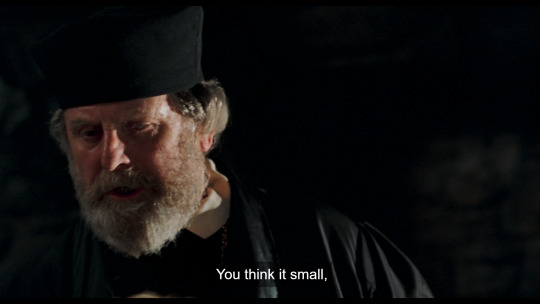
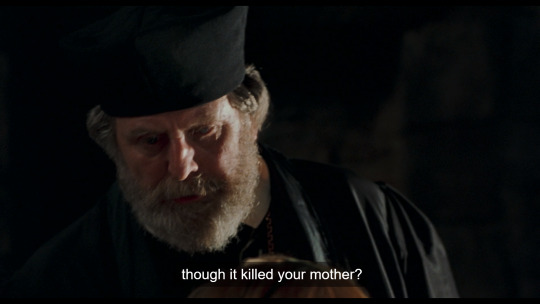

ok, so, i was reading this sort of snark-review of the above movie (which i'm not going to search for because it just overall had little merit, not worth a reread) which cited a specific critique of this above scene ('the matter of religion'), that if elizabeth was told that 'religion' killed her mother her primary response would be confusion, her mother was killed on accusations of adultery, incest, and treason, etc. and also that no one would say this because this obviously was not true.
while technically correct-- obviously the charges leveled against anne were not ones of heresy (although the prevalence of the theory witchcraft was in the suggestion if not literal text of the indictment by 1998 could be the explanation here)-- i would actually defend this creative choice, as a historically sound perception, ie, actually, a sophisticated creative choice in the context of the historical sources available.
protestant martyrologists such as john foxe did rewrite anne into the pantheon of protestant martyrdom, as a symbol if not literal martyr, much like catholic hagiography adopted catherine of aragon as catholic martyr for having suffered for upholding papal primacy, even if not literally dying for this belief as more, fisher, the carthusians, etc. catholic polemicists would not view her as a 'martyr', obviously, but they did view her as a heretic who deserved to die for her heresy among 'other crimes', even if this was not in the official indictment. so, actually... yes, it would be plausible that a marian councilor might threaten elizabeth with the salient reminder that religion 'killed her mother'.
moreover, this movie exists in a post-ives world...it was ives who made mainstream the theory that anne's stance on the dissolution was the catalyst to her downfall, based on strong primary source analysis and timeline recreation of events. after this, we saw a watershed in tudor fiction as it came to portrayals of her... it forced some movement in that binary mold which had existed for so long, anne as either femme fatale or tragic romantic heroine/victim (maybe she was neither of these things, maybe she was, actually, entirely more). in this way, it can be argued, she did 'die for religion'; and even if you disagree, there's still an emotional truth and resonance to this scene (in that this was what certain people believed, whether they cast anne as the heroine or villain of the tale...anne as the victim of a religious conspiracy by 'papists', alexander ales only one among them, anne as the 'wellspring' of 'heresy' in england), even if not a literal paint by numbers 'historical accuracy'.
tl; dr in the words of the immortal florence welch: who's a 'heretic' now?
35 notes
·
View notes
Text
THIS DAY IN GAY HISTORY
based on: The White Crane Institute's 'Gay Wisdom', Gay Birthdays, Gay For Today, Famous GLBT, glbt-Gay Encylopedia, Today in Gay History, Wikipedia, and more … November 21


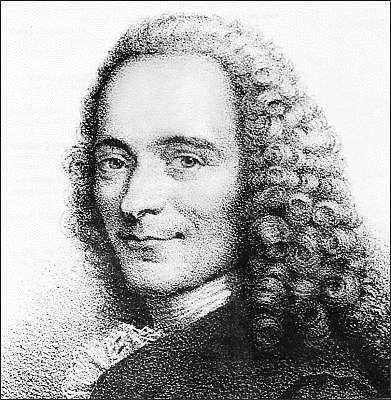
1694 – Voltaire, French philosopher, born (d.1778); born François-Marie Arouet, better known by the nom de plume Voltaire, was a French Enlightenment writer, essayist, deist and philosopher known for his wit, philosophical sport, and defense of civil liberties, including freedom of religion and the right to a fair trial. He was an outspoken supporter of social reform despite strict censorship laws and harsh penalties for those who broke them. A satirical polemicist, he frequently made use of his works to criticize Christian dogma and the French institutions of his day.
The name "Voltaire," which he adopted in 1718 not only as a pen name but also in daily use, is an anagram of the Latinized spelling of his surname "Arouet" and the initial letters of the sobriquet "le jeune" ("the younger"): AROVET Le ieune. The name also echoes in reversed order the syllables of a familial château in the Poitou region: "Airvault".
In terms of religious texts, Voltaire was largely of the opinion that the Bible was: 1) an outdated legal and/or moral reference, 2) by and large a metaphor, but one that perhaps taught some good lessons, and 3) a work of Man, not a divine gift. These beliefs did not hinder his religious practice (It is a line from one of his poems that translates "If God did not exist, it would be necessary to invent Him.") though it did gain him somewhat of a bad reputation in the Catholic Church. He is best known today for his novel, Candide.
Voltaire blew hot and cold on the subject of homosexuality. Although he is known to have sampled the delights of same-sex love on one occasion, he nonetheless admonished a friend who wanted to try it a second time, "Once, a philosopher," he proclaimed, "twice, a sodomite!"
He was locked in a love-hate relationship with Frederick the Great, with whom he spent agonizing, ecstatic years. In her biography of Voltaire, Nancy Mitford writes that "nobody who studies the life of Voltaire can doubt that he had homosexual tendencies, and one wonders whether his feelings for the king were not exacerbated by unrequited passion."
Whatever his personal reservations about homosexuality, the famous French writer was forthright in declaring that sodomy, "when not accompanied by violence, should not fall under the sway of criminal law, for it does not violate the rights of any man." We will never know why Voltaire once signed a letter to a male friend, "E vi baccio il catzo," which, politely translated means, "I kiss your rod."


1915 – James Gleeson (d.2008) was one of Australia's foremost artists. He was also a poet, critic, writer and curator. He played a significant role in the Australian art scene, including serving on the board of the National Gallery of Australia.
Gleeson's themes generally delved into the subconscious using literary, mythological or religious subject matter. He was particularly interested in Jung's archetypes of the collective unconscious.
During the 1950s and '60s he moved to a more symbolic perspective, notions of human perfectibility. At this time he increasingly fashioned small psychedelic compositions made using the surrealist technique of decalcomania in the background, to suggest a landscape, and finished by adding a fastidiously painted male nude in the foreground.
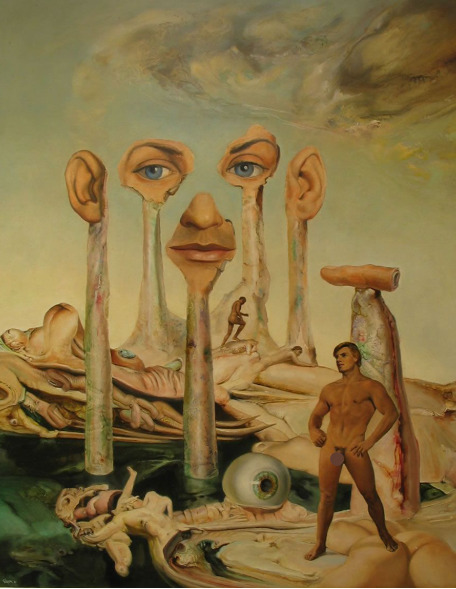
"Totems in Arcadia"
Many of his paintings had homoerotic undertones, something which reflected on Gleeson's own homosexuality. The ideas for these compositions also saw Gleeson move into collage with his Locus Solus series, where he produced a substantial body of work by placing dismembered photographs, magazine illustrations, diagrams and lines of visionary poetry against abstract pools of ink.
Since the 1970s Gleeson generally made large scale paintings in keeping with the surrealist Inscape genre. The works outwardly resemble rocky seascapes, although in detail the coastline's geological features are found to be made of giant molluscs and threatening crustaceans. In keeping with the Freudian principles of surrealism these grotesque, nightmarish compositions symbolise the inner workings of the human mind. Called 'Psychoscapes' by the artist. Gleeson's later works incorporate the human form less and less in its entirety, represented in his landscapes by suggestions, an arm, a hand or merely an eye.
Gleeson died in Sydney on 20 October 2008, aged 92, one year after his life partner Frank O'Keefe.


1940 – Keith Prentice (d.1992) was a Dayton, Ohio-born American TV, film and stage actor, whose most famous role was the part of Larry in both the original stage and film versions of The Boys in the Band. Prentice also appeared on the classic TV soap Dark Shadows during the series' final months in 1971. Until just several years ago, his picture was displayed on the Tasters Choice coffee label.
Prentice studied in New York City at the American Academy of Dramatic Arts. His stage musical credits include Sail Away, The Sound of Music, Paint Your Wagon, and The King and I. In 1968, he appeared off-Broadway in the non-musical The Boys in the Band, a then controversial play featuring gay characters at a dramatic birthday party - the Summer before the Stonewall gay civil rights riots. He also appeared in the movie version of the play. In 1971 Keith joined the cast of Dark Shadows playing Morgan Collins. Prentice also appeared as Nils Fowler in the 1972 film The Legend of Nigger Charley and had a small role in the 1980 film Cruising which, like Boys in the Band, was directed by William Friedkin.
In 1982 Keith Prentice co-founded Kettering Theatre Under The Stars, and directed summer shows there until the year of his death. He died of AIDS-related cancer on September 27, 1992 in Kettering, Ohio.


1947 – Nickolas Grace is a British actor known for his roles on television, including Anthony Blanche in the acclaimed ITV adaptation of Brideshead Revisited and the Sheriff of Nottingham in the 1980s series Robin of Sherwood. Grace also played Dorien Green's husband Marcus in the 1990's British comedy series Birds of a Feather.
Although Grace had a small uncredited part in The City of the Dead (1960), his first known work in feature films as an adult came with Bruges-La-Morte (1978) directed by Ronald Chase. After this, Grace secured the part of the flamboyant aesthete Anthony Blanche in Brideshead Revisited which filmed off and on from 1979 to 1981.
Following the success of Brideshead Revisited on television , Grace played Richard II at the Young Vic in 1981, and Mozart in Amadeus with Frank Finlay at Her Majesty's Theatre in 1982. He then began working in operetta, playing Koko in The Mikado and Joseph Porter in HMS Pinafore for Sadler's Wells Opera in repertoire from 1982-1986. The film Heat and Dust appeared in 1983. It was around this time that took the role of Robert de Rainault, the Sheriff of Nottingham, in ITV's Robin of Sherwood.
In the "official biography" of the actor Alan Bates, Otherwise Engaged, by Donald Spoto, Spoto quotes Grace describing his "intense affair" with Bates, who was "terrified of exposure": "I told him labels didn't matter, but that we must be who we are. But he just could not accept that. Alan was at ease as long as he pretended - and he insisted on pretending - that our relationship was not what it was, and was not disclosed to or evident to others."
Bates, who was then 39 and married, and Nickolas, who was 25, became in the latter's words "very close and very loving, in an intense affair that was one of the most important relationships of my life".
As he had with previous male lovers, Bates denied to Nickolas that he was truly homosexual. If they travelled by car together, "he made me lie down in the back - he didn't want me to be seen with him. That was an indication of the fear that he had".
When the inevitable split with Nickolas came, it was brutal. "It's been very nice to have known you," Alan told him with astonishing coolness one day, "and I'm sure I'll see you around in London." He spoke as if they had been polite colleagues on a project, or fellow travellers on a train journey. It took Nickolas months to recover.

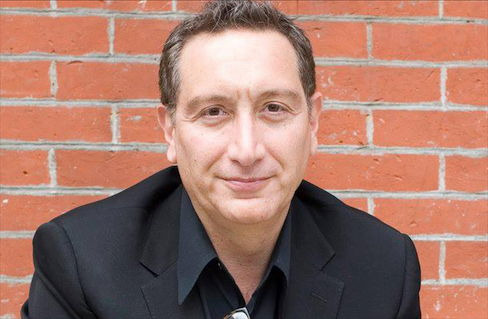
1963 – The playwright, director and founder of Tectonic Theater Project, Moisés Kaufman, was born on this date. He is the author of Gross Indecency: The Three Trials of Oscar Wilde, 33 Variations and is perhaps best known for writing The Laramie Project with other members of Tectonic Theater Project. He was born and raised in Caracas, Venezuela and moved to New York City in 1987. He made his Broadway directing debut in the 2004 production of I Am My Own Wife by Doug Wright, for which he received a Tony Award nomination for Best Direction of a Play. Mr. Kaufman is a Guggenheim Fellow.
Kaufman is of Romanian and Ukrainian Jewish descent. He described himself in an interview as "I am Venezuelan, I am Jewish, I am gay, I live in New York. I am the sum of all my cultures. I couldn't write anything that didn't incorporate all that I am."


1981 – Sergeant Charles Cochrane, a 14 year veteran of the NYPD, created shock waves by testifying before a New York City Council hearing in favor of a gay rights bill. Following on the testimony of a Patrolmen's Benevolent Association Vice President who denounced the bill, and declared he didn't know of any homosexual police officers, Cochrane stunned those present by announcing, "I am very proud of being a New York City Police Officer, and I am equally proud of being gay."
Cochrane's public testimony lent significantly toward the official formation of the Gay Officers Action League, Inc., aka G.O.A.L. - NY, which became the first official police fraternal society in the world to represent LGBT professionals within the criminal justice system. Since that time, similar organizations for LGBT Law Enforcement Officers, Criminal Justice professionals as well as Firefighters and EMS personnel have been established around the world.


1983 – Blake McGrath is a Canadian professional dancer, pop singer and choreographer. He was known for being on the first season of So You Think You Can Dance in 2005, and on the MTV reality dance show, DanceLife. He has also developed a solo singing career with a debut album Time to Move in 2010.
McGrath was born in Mississauga, Ontario.
His early television appearances include: Choices of the Heart: The Margaret Sanger Story (1997) playing Stuart Sanger, and the TV show recreation of Goosebumps book "Stay Out of the Basement". He played the brother Casey.
In 2015, McGrath was chosen to perform on Michael Jackson's thirtieth anniversary special. In 2006, he performed alongside Paulina Rubio at the 2004 Latin Grammy Awards. Also in 2006 he had an appearance in the documentary Freestyle (with Brian Friedman). He has appeared in Gap campaigns (with Sarah Jessica Parker), and in advertisements for iPod, Jc Penny (which he also choreographed), and Hummer.
He has danced with stars such as Madonna, Britney Spears, Kylie Minogue, Janet Jackson, Adam Lambert, Ashanti, Destiny's Child, Katy Perry, Craig David, Jewel.
In addition to his appearances on television shows, McGrath has also appeared in the films Butterbox Babies, Life With Mikey, Chicago, and Rent. He was also featured as a dancer in The Suite Life of Zack & Cody in the episode Commercial Breaks. He was a waiter. He studied at both Tiffany Dance Academy in Hamilton Ontario and Joanne Chapman School of Dance in Brampton, Ontario.
He is owner of VIP Dance Events which tours major cities throughout Canada. He also appeared on the magazine cover of Hotshoes and appeared in Dance Spirit Magazine December 2006 issue. Lastly, he appeared on the 9/10/13 episode of Dance Moms as a guest choreographer. He is the lead choreographer for the audition cities and alternating third judge on So You Think You Can Dance Canada.
He is bisexual. "I've been attracted to men and attracted to women," he told Canada's gay mag Fab. "My feelings change all the time. One day I can feel like I'm gay, another day like I'm straight. But I'm not just one or the other, I'm Blake McGrath and I'm attracted to somebody on the inside.


2006 – Israel's Supreme Count recognizes international same-sex marriages.



Today's Gay Wisdom:
Quotes from Voltaire:
A witty saying proves nothing.
All murderers are punished unless they kill in large numbers and to the sound of trumpets.
Anyone who has the power to make you believe absurdities has the power to make you commit injustices.
Anything that is too stupid to be spoken is sung.
Behind every successful man stands a surprised mother-in-law.
Better is the enemy of good.
Common sense is not so common.
Each player must accept the cards life deals him or her: but once they are in hand, he or she alone must decide how to play the cards in order to win the game.
Every man is guilty of all the good he did not do.


10 notes
·
View notes
Text
There is much to ponder in the way an early Zionist’s denigration of modern art and diaspora Jewry mirrors the ideological monstrosities that would soon envelop Europe. As my talk at Stanford neared, the polemicists and opinion writers—many of them Nordau’s philosophical descendants—who insisted my art was “Nazi-like” because of its grotesqueries, because of its hyperbole, and because it skewers petty fascists, were not just exposing themselves as ignorant of a century of exhilarating art that raged against the most despicable forces in history. They were also operating within that history, treading the path of the very movement they insist they despise. In their insistence on removing a supposedly profane element from both the Jewish community and the artistic landscape, they were direct heirs to the most abominable, antisemitic movement in Jewish history. That they claimed to be doing so out of dire concern for Jewish welfare is obscene.
87 notes
·
View notes